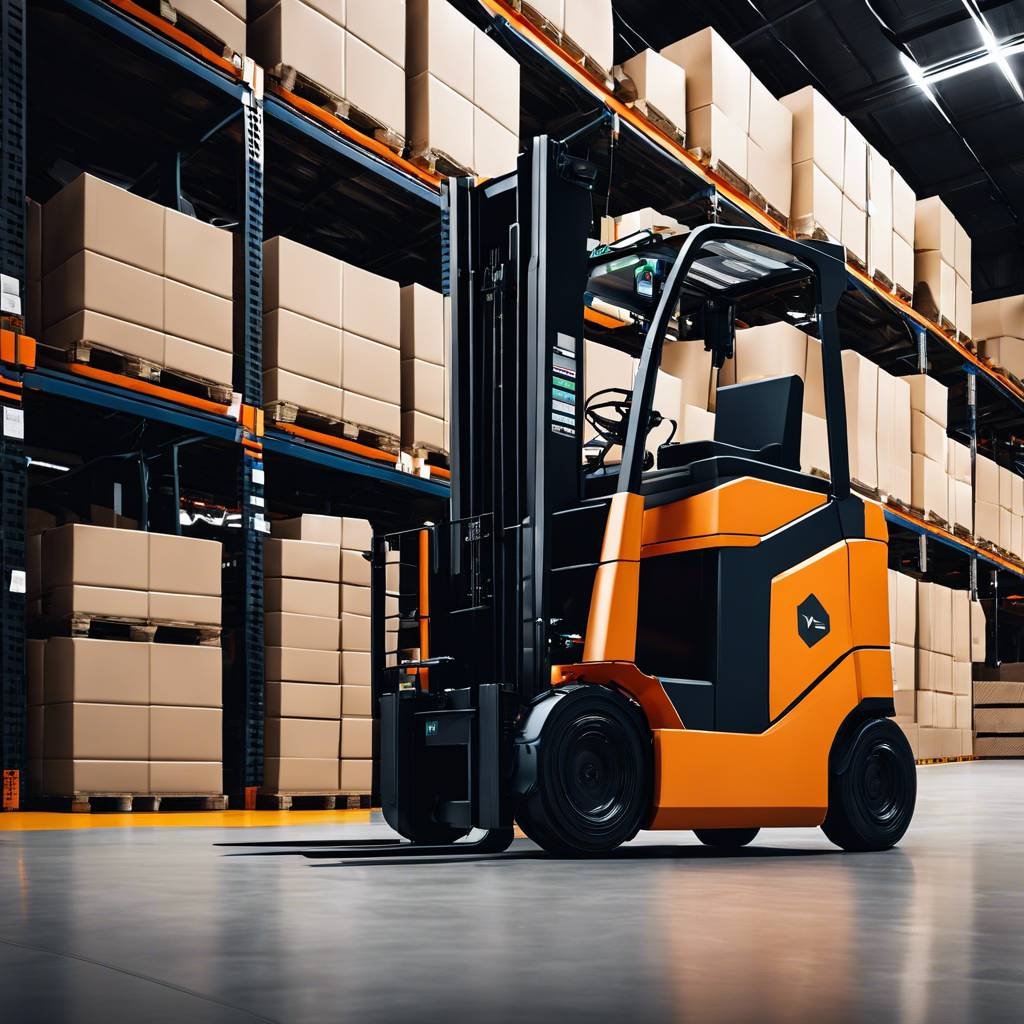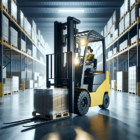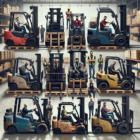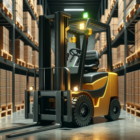In an era when innovation is driving efficiencies across all trades, the construction and warehousing industries are no exceptions. The integration of advanced software like ProStar’s PointMan into devices such as Rycom’s Pathfinder exemplifies the digital transformation that is enhancing the way businesses manage their infrastructure and assets. But, how does this tech trend relate to core operations in warehousing, such as forklift management? Let’s explore the connection and its significance to forklift hire in Sydney, forklift servicing, and an ongoing debate – diesel forklift vs electric forklift.
Understanding the potential benefits of such innovative integrations is essential for those considering forklift hire Sydney, particularly for companies that rely heavily on the efficiency and reliability of their equipment. The infusion of software solutions into locating devices is a leap towards greater precision, data management, and, ultimately, cost-effectiveness in operations. For a forklift hire company, adopting similar digital enhancements can lead to improved fleet management and servicing regimes.
Imagine a scenario where forklifts are fitted with digital tracking software, akin to ProStar’s PointMan, which records and displays critical data concerning the machine’s health. Such technology would ensure that you, the client, are hiring forklifts that are continuously monitored for performance and safety. Consequently, forklift repairs can be anticipated and scheduled at opportune times, reducing unexpected downtime – a crucial advantage for businesses that cannot afford operational delays.
But the benefits don’t stop at maintenance alone. The impact on the forklift servicing Sydney industry is equally profound. Service providers empowered with detailed, real-time data can perform more precise and faster diagnostics, ensuring that your forklifts spend less time in the workshop and more time on the floor. This precise and efficient servicing lends itself to improved overall productivity – an essential factor when every minute of operational time counts.
In the context of forklift choice, the diesel forklift vs electric forklift debate gets a technological twist. With the advancements in software and tech integration, electric forklifts – often celebrated for their greener footprint and lower maintenance requirements – might further distance themselves from their diesel counterparts. Facilities equipped with cutting-edge tracking and diagnostic systems could leverage the cleaner and quieter operation of electric forklifts, all the while optimizing their performance through digital means. This may be compelling for businesses looking at long-term sustainability and efficiency.
It is also important to consider how these tech integrations influence the purchasing decisions of popular models like the Toyota forklift. Known for their reliability, integrating modern tracking systems into such brands can heighten their appeal and functionality, offering even greater assurances and better return on investment to the end-user. A Toyota forklift equipped with digital monitoring software not only benefits from the brand’s inherent qualities but also adds a layer of futuristic smart management, embodying the cutting-edge of warehouse mobility equipment.
For our clients in Sydney, the bottom line remains the efficient, cost-effective management of their forklift fleet – whether it’s for hire, servicing, or repairs. With the digital revolution in construction and warehousing gear portrayed by the likes of ProStar and Rycom, businesses can anticipate a forward leap into a future where every piece of equipment, including forklifts, is connected, smart, and seamlessly integrated into the company’s operational eco-system.
Therefore, the lesson to take away from the global tech trends is clear: those investing in forklift services and equipment must keep an eye on the burgeoning digital capabilities. Ensuring your fleet is up to date with the latest technologies will not only bring about logistical benefits but also place you at the forefront of an industry that is rapidly evolving to meet the demands of the modern world.
The proactive adaptation of such technologies within forklift management can lead to exciting new horizons in inventory control, workflow optimization, and the seamless integration of automated systems within traditional warehousing environments. Keeping up with these innovative approaches is more than just keeping pace with competition—it’s about setting the standard for operational excellence in an increasingly connected industrial landscape.





